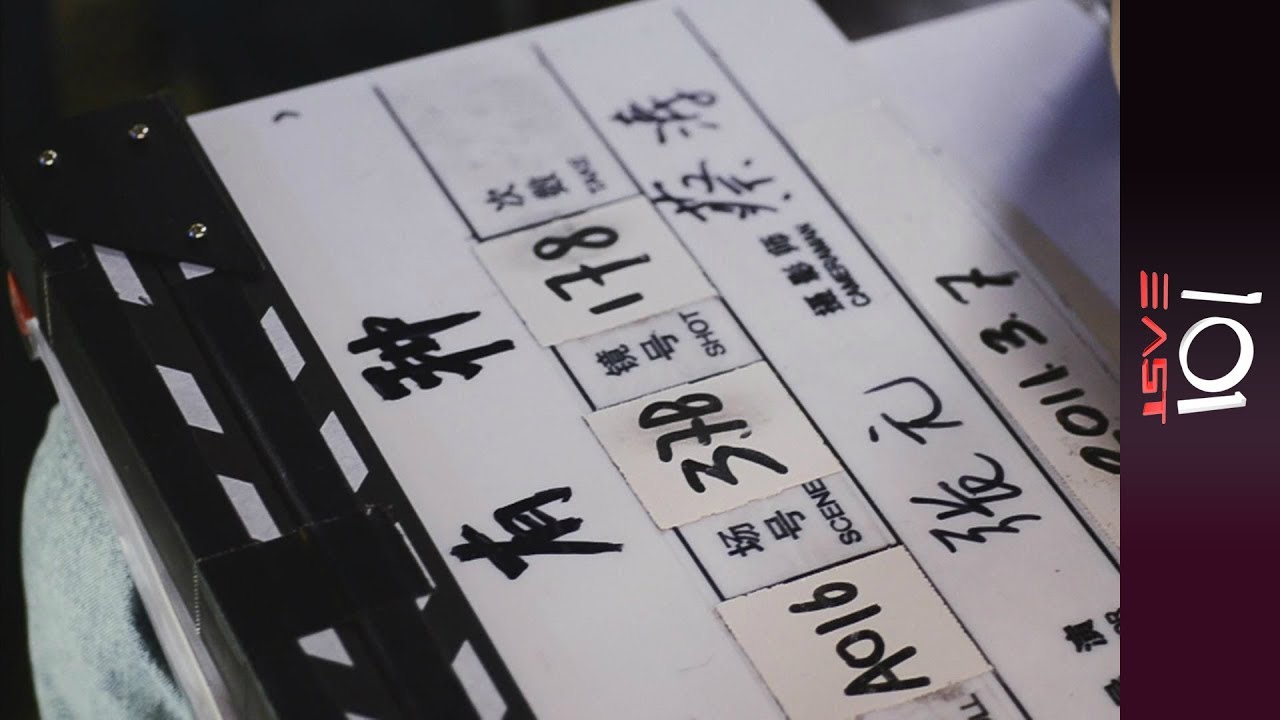🇨🇳 Inside Chollywood: China’s Movie Industry | 101 East
In 2006, when Tang Long made the long journey from rural Hubei to the Hengdian World Studios in eastern China, he had one dream in mind – to make it as an actor.
Arriving at the largest outdoor film set in the world, where hundreds of productions take place every year, he knew nothing about the film industry and no one in it. Tang started out as an extra, and was paid $4 a day to be part of a large crowd in the background of a scene.
The next step up would be what the industry calls a “contract extra”, where he gets a close-up shot, possibly with a line if he is lucky.
“I never made it,” says Tang, who stands at about 1.6 metres tall. “I don’t have the physique and there was just too much competition. Everyone here is dreaming of stardom and trying to show off their talents.”
To feed himself, Tang took on any behind-the-scenes role that came along. As a tea boy with a can-do attitude, he quickly impressed and worked his way up to managing location runners.
“I don’t have to be a star; I just want to be in this industry. I’m passionate about it,” he says. “Many foreign filmmakers are eyeing the massive Chinese market, they want to shoot here. Hollywood professionals spend a lifetime accumulating heaps of experience. We can learn a lot from them in co-productions.”
Co-productions are a gold-class ticket for Hollywood into Chinese cinema, the world’s second-largest movie market, that has been growing at 30 percent a year over the past decade.
The boom lured an A-list Hollywood cast to China recently, to celebrate the launch of an $8bn movie metropolis, built by China’s richest man, Wang Jianlin. It will be completed in just four years, and will provide world class facilities for 100 local and foreign productions a year, boosting China’s global cultural influence.
Shi Chuan, a film professor at Shanghai University, explains the boom: “Nearly 80 to 90 percent of Chinese had never been to cinemas, which were only found in bigger cities. The current growth is happening in the second and third tier cities where there used to be no cinemas. Therefore there’s massive potential.”
To cater to Chinese taste, Hollywood is adding Chinese elements to the plot. Shi cites this year’s blockbuster Iron Man 3 as an example. The Chinese release had four minutes of extra footage with China-related elements, mostly deleted for the international version.
Hollywood also made the latest James Bond film Skyfall ‘China-friendly’ – a Chinese security guard who was killed in the original version did not exist for viewers in China.
Well-known Chinese director Zhang Yuan says local filmmakers get a much more rigorous time from the censors. His latest film, Beijing Flickers, explores marginalised communities in Beijing and he says it was held up by the authorities for over a year before its release in early November this year.
Zhang says censors stifle creativity.
“Before government censorship, we were already self-censoring when scripting, shooting and editing,” he says. “A flood can flush away the White House in a Hollywood film. Which Chinese film dares to do the equivalent?”
Meanwhile, the Chinese box office is booming – 10 new cinema screens are added in China every day and box office revenue has exceeded $3bn this year and is expected to surpass that of North America in just six years.
In 2013, for the first time, domestic films sold more tickets than imported ones. To protect the domestic industry, China only allows 34 foreign films a year to screen in cinemas. Local productions also get a bigger share of ticket sales, making it even more tempting for foreign studios to work with them.
Bona Film Group is China’s leading privately-owned film producer and distributor – its ambition is to find a happy marriage between East and West.
In 2012, it signed deals with Universal Studios and Fox International Productions. Bona is now working with Fox on their first co-production to be released next year.
Its CEO, Yu Dong, says Hollywood will benefit China with its established global distribution network.
“Chinese cinema needs to enter the English language market in a hurry,” says Yu Dong. “Hollywood products can enter any market in the world, be it Chinese, Arabic or anywhere else. So co-productions with Chinese film companies will propel its films into the English language market.”
But as more Chinese filmmakers enter the industry to ride the boom, film professor Shi Chuan says production quality has fallen compared to the 1980s. Out of more than 700 films produced this year, three quarters were deemed not good enough for theatrical release.
More from 101 East on:
YouTube – http://aje.io/101eastYouTube
Facebook – http://facebook.com/101east
Twitter – http://twitter.com/aj101east
Instagram – http://instagram.com/aj101east
Website – http://aljazeera.com/101east
#AlJazeeraEnglish #101East #Chollywood




![Private: [ID: fBgycpxLWOA] Youtube Automatic](https://nezha.pro/wp-content/uploads/2023/09/private-id-fbgycpxlwoa-youtube-a-236x133.jpg)
![Private: [ID: 5pjnizqXy-g] Youtube Automatic](https://nezha.pro/wp-content/uploads/2023/08/private-id-5pjnizqxy-g-youtube-a-236x133.jpg)
![私密內容: [ID: EKY1OChHTa0] Youtube Automatic](https://nezha.pro/wp-content/uploads/2023/08/id-eky1ochhta0-youtube-automati-236x133.jpg)
![私密內容: [ID: 4UFe4tRMZ0Y] Youtube Automatic](https://nezha.pro/wp-content/uploads/2023/08/id-4ufe4trmz0y-youtube-automati-236x133.jpg)
![私密內容: [ID: pkl8HVDagHo] Youtube Automatic](https://nezha.pro/wp-content/uploads/2023/08/id-pkl8hvdagho-youtube-automati-236x133.jpg)
![私密內容: [ID: 5daehHaqpeo] Youtube Automatic](https://nezha.pro/wp-content/uploads/2023/07/id-5daehhaqpeo-youtube-automati-236x133.jpg)
![私密內容: [ID: XxMUOi61Irs] Youtube Automatic](https://nezha.pro/wp-content/uploads/2023/07/id-xxmuoi61irs-youtube-automati-236x133.jpg)
![Private: [ID: uY5SX8c8kWI] Youtube Automatic](https://nezha.pro/wp-content/uploads/2023/10/private-id-uy5sx8c8kwi-youtube-a-236x133.jpg)
![私密內容: [ID: tobguo86Ju4] Youtube Automatic](https://nezha.pro/wp-content/uploads/2023/07/id-tobguo86ju4-youtube-automati-236x133.jpg)
![私密內容: [ID: 00P3TEP9Tx0] Youtube Automatic](https://nezha.pro/wp-content/uploads/2023/06/id-00p3tep9tx0-youtube-automati-236x133.jpg)